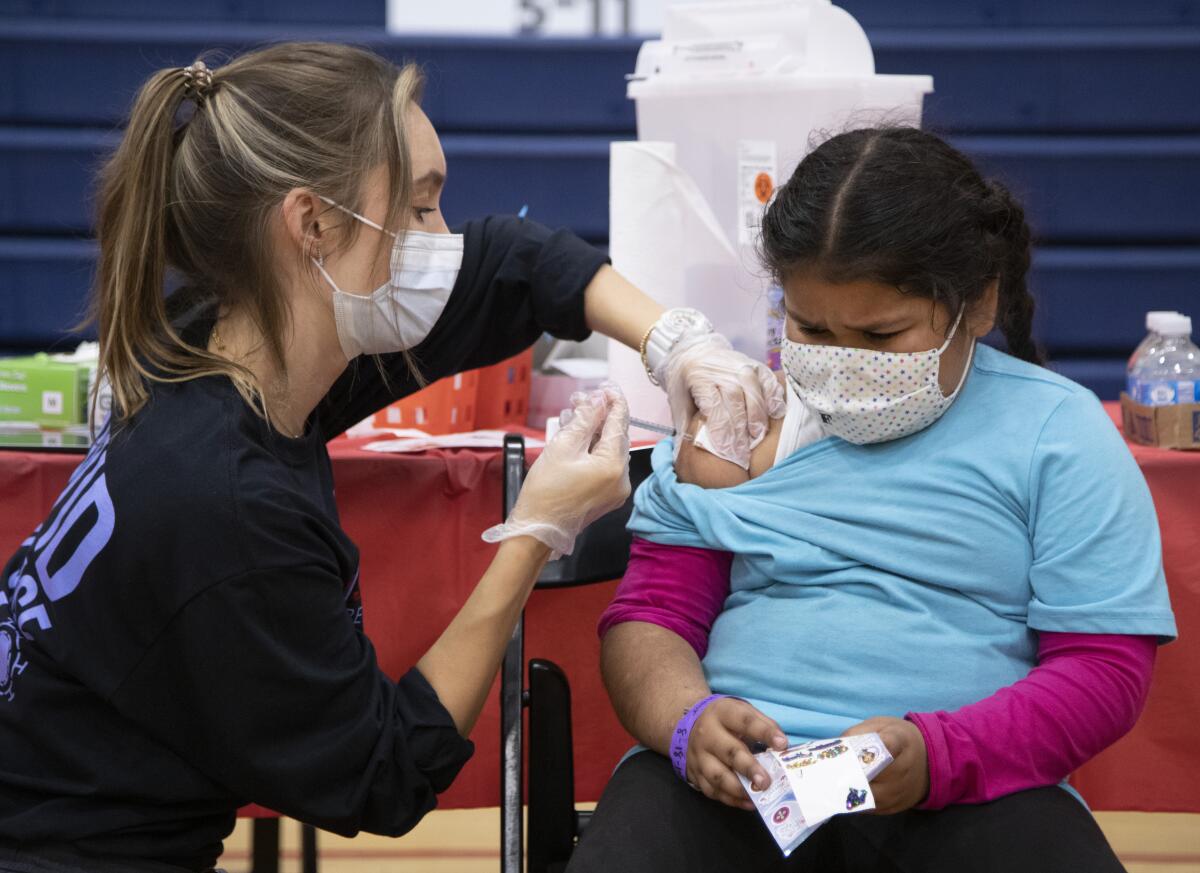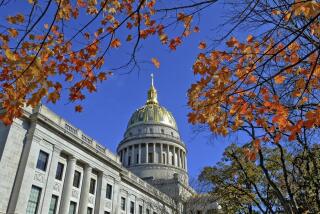California bill would boost schools’ access to student COVID-19 vaccine data

SACRAMENTO — California school officials could more easily check student COVID-19 vaccine records under a bill introduced Friday that would expand access to a statewide database, part of a broader effort in the Legislature to drive up school immunization rates.
The state Department of Public Health oversees a centralized, confidential online portal for all vaccine records, the California Immunization Registry. Healthcare providers can voluntarily submit vaccine information to the portal, and school officials can check the registry to ensure that students have the shots necessary for enrollment. Current required vaccines include those for chickenpox, polio, measles, mumps and rubella.
The new proposal would allow school administrators to check students’ COVID-19 vaccine status and would implement a mandate for vaccine providers to submit all immunization records to the registry. A third provision of the bill would require providers to report race and ethnicity data to help determine demographic groups in which vaccination rates are lagging.
Assembly member Akilah Weber, a San Diego Democrat and physician, said during a Friday news conference that the bill would equip schools with important vaccine data so they can keep their doors open during the pandemic. Weber said the onus is currently on parents to supply vaccine records, which can be a burden for families and can keep schools from obtaining critical information if it isn’t provided.
“[Schools] don’t have access right now to the COVID vaccine to see which students exactly have gotten it and which students haven’t,” Weber said. “So they’re relying on parents giving out that information. I’m a parent. That’s challenging to have to always look for the vaccines that my kids have gotten. To have it in a system already is one less thing that schools have to worry about, one thing less that parents have to worry about. And it makes it very easy for physicians.”
Assemblyman Kevin Kiley (R-Rocklin) said the bill raises privacy concerns by proposing to increase access to personal information in the California Immunization Registry. In 2020, the state began allowing people to opt out of sharing their or their children’s information with organizations that use the vaccine registry.
“They have reversed course and want to use it to target students based on the medical choices made by their families, all while taking away their option for a personal-belief exemption,” Kiley said. “I will be opposing this latest affront to parental rights.”
Weber’s office said the bill would not alter existing privacy policies. Parents could still decline to share information through the registry’s “lock” feature, which prevents doctors and school personnel from seeing personal vaccine status. But the data would still be collected anonymously into the registry, which public health and school officials can reference without identifying individual students in order to check broad vaccination rates.
If parents refuse to share a child’s information through the registry, they would have to provide proof of vaccination or a rare medical exemption to the school.
Weber is one of seven lawmakers who have formed a vaccine working group this year, and her proposal is the third the coalition has introduced to boost childhood immunization rates and keep schools open. So far, just 26.3% of 5- to 11-year-olds are fully vaccinated against COVID-19, according to state data. For 12- to 17-year-olds, the rate is 64.4%.
State Sen. Scott Wiener (D-San Francisco) introduced a bill last month that would allow kids 12 and up to be vaccinated against COVID-19 without parental consent. Sen. Richard Pan (D-Sacramento) wrote a bill last month to require the shot for schoolchildren; in October, Gov. Gavin Newsom announced a narrower COVID-19 mandate for students, which Pan’s measure aims to strengthen with a broader requirement.
The legislators’ efforts have ignited fierce opposition from antivaccine activists and other groups opposed to mandates, who argue that the bills represent government overreach and an infringement on parental rights.
Pan, a pediatrician and author of California’s strict school vaccine laws, said Friday that the latest measure would help provide “confidence and certainty” for schools, families, staff and students who’ve endured nearly two years of disruption because of the pandemic.
“This registry is really critical to being sure that we have the data necessary on vaccination rates to protect students in schools,” Pan said, adding that vaccine misinformation has complicated the fight to keep schools open and get more students immunized.
More bills are expected to be introduced before a Feb. 18 legislative deadline.
More to Read
Sign up for Essential California
The most important California stories and recommendations in your inbox every morning.
You may occasionally receive promotional content from the Los Angeles Times.












